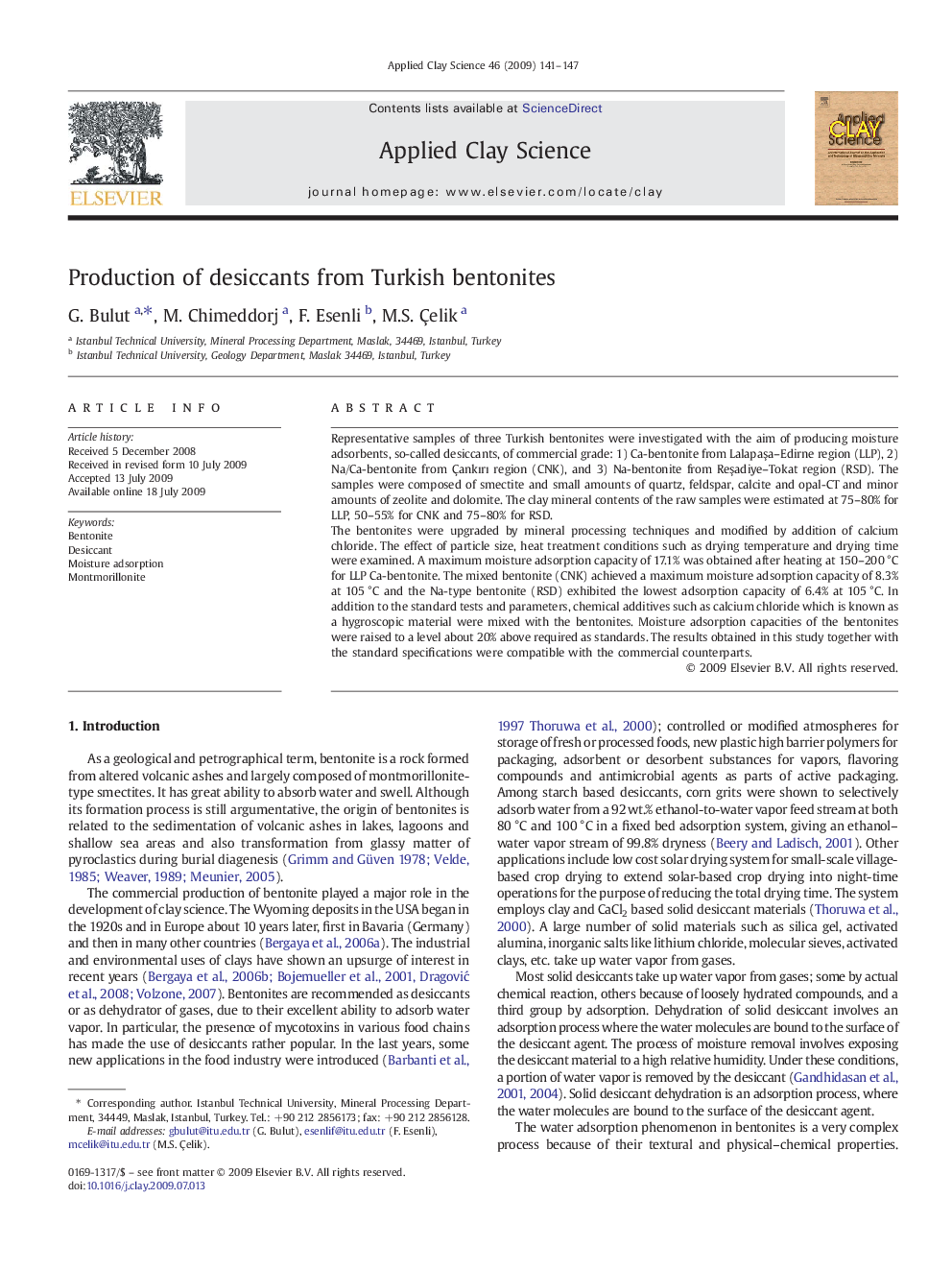| Article ID | Journal | Published Year | Pages | File Type |
|---|---|---|---|---|
| 1695897 | Applied Clay Science | 2009 | 7 Pages |
Representative samples of three Turkish bentonites were investigated with the aim of producing moisture adsorbents, so-called desiccants, of commercial grade: 1) Ca-bentonite from Lalapaşa–Edirne region (LLP), 2) Na/Ca-bentonite from Çankırı region (CNK), and 3) Na-bentonite from Reşadiye–Tokat region (RSD). The samples were composed of smectite and small amounts of quartz, feldspar, calcite and opal-CT and minor amounts of zeolite and dolomite. The clay mineral contents of the raw samples were estimated at 75–80% for LLP, 50–55% for CNK and 75–80% for RSD.The bentonites were upgraded by mineral processing techniques and modified by addition of calcium chloride. The effect of particle size, heat treatment conditions such as drying temperature and drying time were examined. A maximum moisture adsorption capacity of 17.1% was obtained after heating at 150–200 °C for LLP Ca-bentonite. The mixed bentonite (CNK) achieved a maximum moisture adsorption capacity of 8.3% at 105 °C and the Na-type bentonite (RSD) exhibited the lowest adsorption capacity of 6.4% at 105 °C. In addition to the standard tests and parameters, chemical additives such as calcium chloride which is known as a hygroscopic material were mixed with the bentonites. Moisture adsorption capacities of the bentonites were raised to a level about 20% above required as standards. The results obtained in this study together with the standard specifications were compatible with the commercial counterparts.
